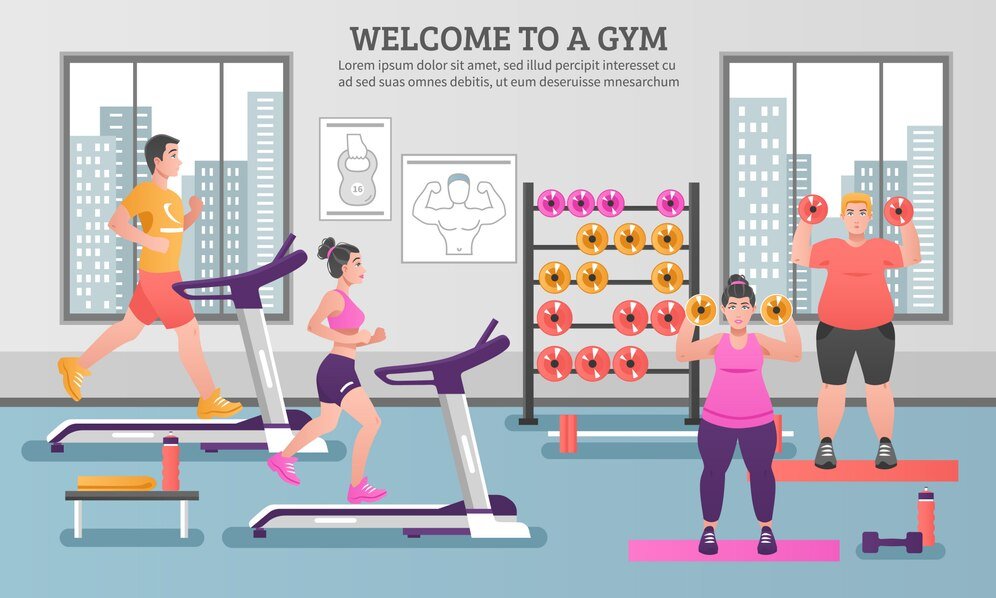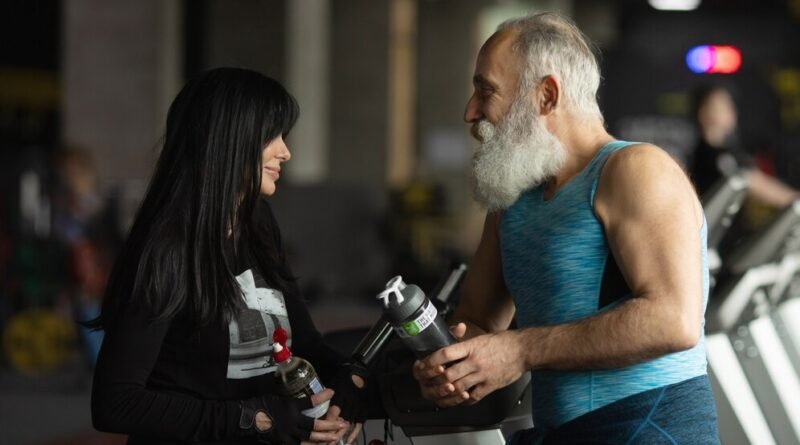What is the minimum age requirement to visit the gym?
It can be intimidating to navigate the world of fitness, particularly when it comes to knowing how old you have to be to visit the gym. Knowing the regulations pertaining to gym access is crucial, regardless of whether you’re a parent pondering whether your kid can accompany you on a workout or an adolescent excited to start your fitness adventure. We’ll go over age restrictions at different gyms, talk about the advantages of working out early in life, and provide advice on safe workouts in this guide.

Key Points to Consider
- Typical Starting Age: Most gyms allow children to begin their fitness journey between the ages of 12 and 16, although specific regulations can vary.
- Parental Consent: Minors usually require permission from a parent or guardian to sign up for a gym membership.
- Supervision Policies: Many gyms mandate adult supervision for individuals under 18 while using gym equipment.
Understanding Age Policies at Popular Gyms
-
YMCA: As long as an adult is present, kids as young as 7 are welcome to work out at this family-friendly facility. After completing a fitness orientation program, children can use the equipment on their own after they become 10 years old.
-
24 Hour Fitness: If a parent signs a disclaimer, children under the age of twelve are allowed to use the gym here. Though there might be daycare services available, children under the age of 12 are normally not permitted to utilize gym equipment.
-
Life Time Fitness: Like 24 Hour Fitness, members can begin at any age. For kids under this age, Life Time Fitness also provides daycare, so parents can work out without worrying about being watched after.
-
Crunch Fitness: Children 12 to 14 years old at Crunch need an adult to supervise them while they use the equipment, but 15 years old and up can work out on their own with a parent’s completed consent form.
-
Gold’s Gym: Participants must be at least 12 years old, and parents must go with them at first. They can start working out on their own when they become sixteen.
-
Planet Fitness: Adolescents must have an adult present until they are 15, however they can enroll at age 13. They can then enjoy working out on their own.
-
Anytime Fitness: Teens can start here as early as age 15, given a guardian is present upon registration. When they register, they can work out on their own.
-
Equinox: 15-year-olds can work out with an adult, but they can’t use the gym by themselves until they’re 18 years old.
Benefits of Gym Membership for Children and Teens
1. Establishing Healthy Habits Early
Regular physical activity is essential for forming habits that last a lifetime. A love of fitness that lasts throughout adulthood can be cultivated early on.
2. Managing Weight
Maintaining a healthy weight requires physical activity, particularly during the rapid changes that come with adolescence. Frequent exercise helps control body composition and encourages the burning of calories.
3. Reducing Health Risks
Chronic diseases such as diabetes, hypertension, and heart disease can be prevented by maintaining an active lifestyle. Promoting regular exercise in children prepares them for a healthy future.
4. Building Strong Bones
Weight-bearing activities are essential for maintaining healthy bones, particularly in developing kids. Running and strength training are two exercises that help build denser bones and lower the risk of fractures.
5. Enhancing Mental Well-Being
Endorphins, sometimes known as “feel-good” hormones, are released when you exercise. This increase is especially helpful for kids since it can elevate mood, lessen anxiety, and improve general mental health.
6. Boosting Confidence and Self-Esteem
Frequent exercise can enhance one’s physical attributes and degree of fitness, which can boost self-esteem and confidence. This is particularly crucial during the frequently difficult adolescent years.
7. Academic Performance
Studies indicate a favorable association between physical exercise and scholastic achievement. Frequent exercise helps improve memory and focus, which can improve academic achievement.
Safe and Effective Workouts for Young Gym-Goers
Take into account the following advice to make sure youth enjoy a safe and productive time at the gym:
1. Supervision is Essential
Idealistically, parents should work out alongside their kids in the same space, providing advice on how to use the equipment and form correctly. It’s crucial for teenagers exercising alone to seek trainers for help when they need it.
2. Enjoyable Activities
Urge young people using the gym to experiment with different equipment and activities. Discovering fun activities to do, like swimming, cycling, or group classes, might encourage a passion of fitness.
3. Warm Up and Cool Down
Before any activity, dynamic warm-ups like lunges and jumping jacks are essential to preventing injury. Stretching and cooling down after a workout promote flexibility and recuperation.
4. Hydration Matters
It’s important to stay hydrated when working exercise. Particularly in hot weather or during vigorous workouts, encourage kids to drink water before, during, and after their workouts.
5. Rest Days Are Important
It takes time for muscles to heal. Including rest days in between workouts that focus on the same muscle groups encourages muscle growth and helps prevent injuries.
6. Foster a Positive Body Image
Parents should encourage positive body image by placing more value on work and accomplishments than looks. It can be beneficial to limit your exposure to unattainable body standards on social media.
Conclusion
It is imperative that parents and young fitness enthusiasts alike are aware of the minimum age required to visit the gym. There are many of opportunities for kids to get active and form healthy habits because there are so many options accessible, ranging from specialized gyms like Planet Fitness to family-friendly spaces like the YMCA. We can assist the future generation in succeeding in their fitness endeavors by guaranteeing appropriate supervision, fostering fun workouts, and advocating a favorable attitude toward fitness.
FAQs about Minimum Age Requirements for Gym Access
Q1: What is the typical minimum age to join a gym?
A1: Most gyms allow children to join between the ages of 12 and 16, but policies can differ by location.
Q2: Do kids need parental consent to join a gym?
A2: Yes, most gyms require a parent or guardian to sign a consent form for minors.
Q3: Are there any gyms that allow children under 12 to work out?
A3: Some gyms may have specific programs or childcare services, but most do not allow children under 12 to use gym equipment.
Q4: Can teens work out alone at the gym?
A4: Teens usually can work out alone starting at age 15 or 16, depending on the gym’s policies.
Q5: What types of exercises are safe for young children?
A5: Bodyweight exercises, light resistance training, and activities like swimming or cycling are generally safe for younger children.




